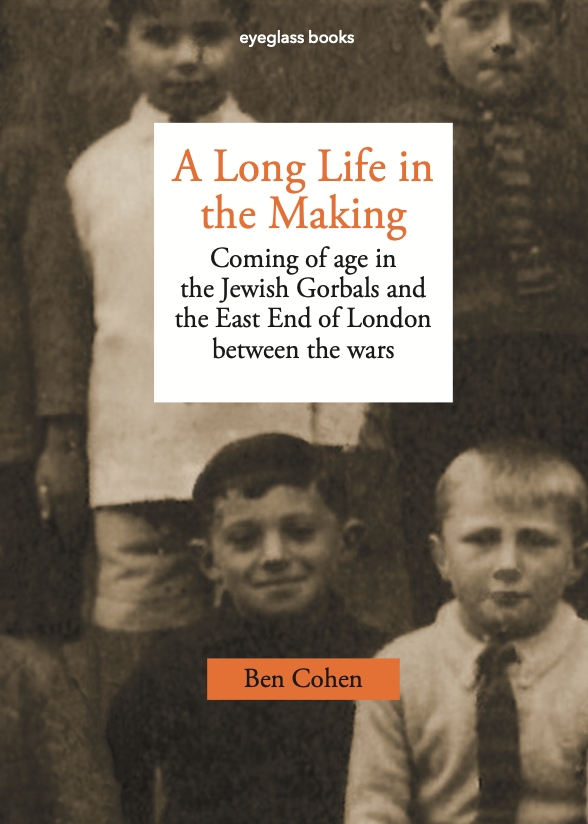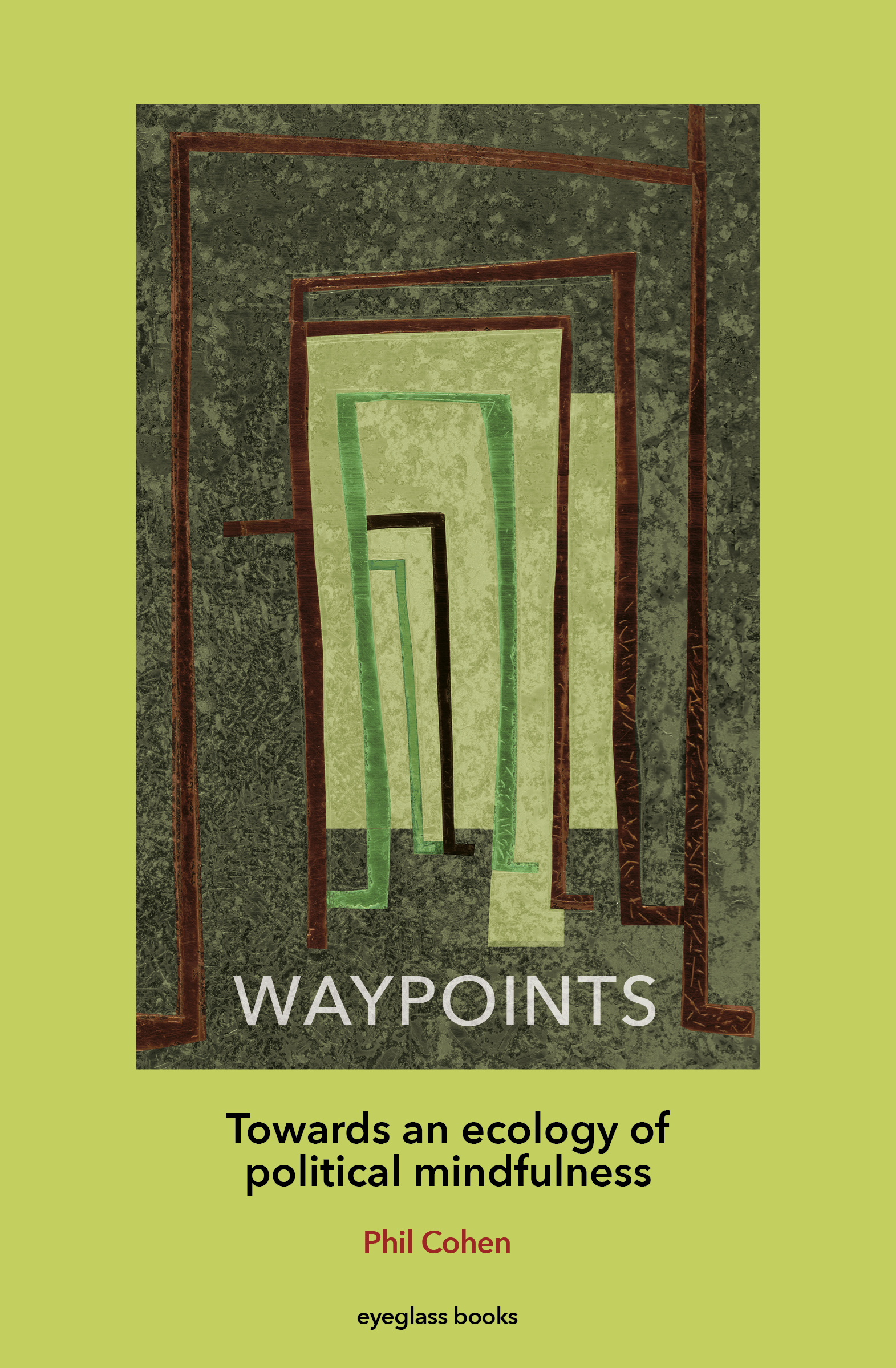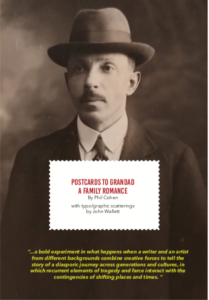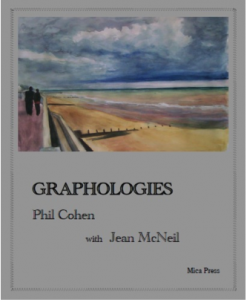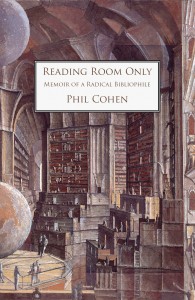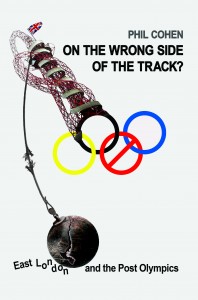1.Mad Dogs
Like most of you, I have been following the public debate about the EU referendum with horrified fascination and growing anxiety. Listening to the claims and counter-claims of the Remainders and Brexiteers reminded me of that famous opening verse of Yeats’ poem ‘The Second Coming’ written in the immediate aftermath of the First World War:
Things fall apart; the centre cannot hold;
Mere anarchy is loosed upon the world,
The blood-dimmed tide is loosed, and everywhere
The ceremony of innocence is drowned;
The best lack all conviction, while the worst
Are full of passionate intensity.
What is clearly falling apart is the managed consensus of the Westminster political class, with its electoral pre-occupation of capturing the ideological centre ground. As for the ceremony of innocence, the widespread disenchantment with mainstream party politics has opened up a space for more authentic and expressive forms of civic engagement, to reclaim authentic principles of hope in danger of being drowned out by the media spin machine. Yet the more populist response has been from the Right not Left field. What passionate intensity there has been, is largely from the leading Tory Brexiteers, while Corbyn’s lack of conviction in backing Remain is all too palpable.
We are familiar with a bi-polar political culture with its rapid moods swings from manic denial of painful or unpalatable realities, to the depressive recognition that no –one has the political will or capacity to do anything to change them for the better. On the Left we are used to hollow triumphalism being capped by rampant defeatism. But in the case of the referendum debate, ever more inflated prophecies of doom (from economic meltdown to a third world war) have not been trumped by visions of New Dawn. The choice has simply been between two different scenarios of how things might get a whole lot worse, if we make the wrong choice. On one side the spirit of free enterprise is stifled by Brussels bureaucracy, while our public services are swamped by hordes of EU immigrants who take our jobs, our housing and even our exams. On the other side, the flight of capital, collapse of investment, and consequent loss of jobs is accompanied by a fiscal crisis which precipitates another recession.
There has been much talk of ‘project fear’, but less attention paid to the way existing idioms of moral panic associated with perceived threats to public order ( terrorists, sexual predators, criminal gangs, and carriers of ‘alien’ ideas and cultures) have been mobilised as tokens of political stakes around issues of sovereignty and border control. Both sides have traded in the false currencies of in/security, offering impossible protective measures that only serve to fuel public alarm and despondency.
We are dealing here with a form of hysteria which has not only seized hold of the political class, but which the two campaigns are seeking to inject into civil society. It is worth remembering that hysteria is a form of dissimulation. The hysterical symptom masks the trauma of a reality whose trace it bears like scar, and which also constitutes a blind spot, something that cannot be put into words. In this context, conflicts internal to the body politic are first ’somatised’ –that is they are experienced as organic or integral to its mode of functioning- and then disavowed, by being projected onto an external body, in this case the EU, where they can be dealt with through purely symbolic action : voting to stay in or leave. So for example, the widening inequalities in British society, the enormous disparities in wealth, power and opportunity , not only in term of class formation but in their regional distribution, are taken for granted as an inherent part of an unchangeable political and economic landscape, but, at the same time, they are also held to originate from outside as a result of globalisation, and to be either mitigated or reinforced by membership of the EU.
Hysteria, as a structure of mobilised political feeling, involves a strategy of displacement, a play of substitutions, involving the classical mechanisms of denial, projection and splitting. The two campaigns faithfully mirror one another in their style of vituperation as in the mechanisms of scapegoating that they authorise. At the same time we must not forget that hysteria is a defence against a trauma of the real. In this context the real is the fact that our culture, history and political economy is inextricably bound up with that of Europe and its key institutions, including the EU itself That relation can best be described in terms of the famous Uncle Remus story about the’tar baby’. You will recall that, Br’er Fox constructs a doll out of a lump of tar and dresses it with some clothes. When Br’er Rabbit comes along he addresses the tar baby amiably, but receives no response. Br’er Rabbit becomes enraged by what he perceives as the Tar-Baby’s bad manners, punches it, and in doing so becomes stuck. The more Br’er Rabbit punches and kicks the tar “baby”, the worse he gets stuck.
This first part of the story pretty accurately describes how the British political class, of whatever ideological persuasion, perceives their dealings with the Eurocrats. Brussels commitment to ‘ever greater political union’ and indifference to this country’s ‘special needs’ has forced us to get ever more mired in the workings of the organisation, and the more we struggle to get free, the more trapped we become.
However in the second half of the story it turns out that Brer Rabbit has a trick up his sleeve and succeeds in turning the tables on Brer Fox. He pleads “Do anything you want with me — roast me, hang me, skin me, drown me — but please, Br’er Fox, don’t fling me in dat brier-patch,” prompting the gloating Br’er Fox to do exactly that. As thickets are home from home to rabbits, the resourceful Br’er Rabbit escapes.
For both camps the referendum is their briar patch, where they are on home ground and can escape the tar baby’s clutches, either by outfoxing the Eurocrats who wants to skin us alive, by insisting that our burrows ( or bolt holes) are none of their business or by joining forces with them to ensure that rabbits are a protected species.
The point of the analogy is to suggest that the referendum debate, for all its obsession with facts, has another, more unconscious dimension, not a deliberately hidden agenda, but what Freud called ‘its other scene’. For all that both sides claim that the issue is a matter of rational calculation couched in the language of relative costs and benefits, the war of statistics has proved to be central to the politics of what we might call hysterical materialism : the belief that the mere assertion of material facts has a performative effect and will bring about the desired state of affairs.
Two very different concepts of the future are at stake here. The first is the one we are familiar with, the extrapolation of present trends to predict what society will be like if they continue. This form of futurology relies on setting up a number of different scenarios and then working out how various kinds of agency are likely to behave. It is usually a precautionary analysis designed to minimise or mitigate risk and underpins the proverbial conservatism of common sense : rather the devil you know than the devil you don’t, look before you leap etc etc.. The second perspective on the future sees it not as an extension of the present, but as a break with it and conducts a thought experiment to map out an emergent horizon of possibilities under different sets of circumstance. It is more like an adventure story, than a cautionary tale, focussing of what is in process of becoming rather than what is, what might be gained rather than lost.
In principle the Remainders should favour the first approach and the Brexiteers the second, but the situation is complicated by a profound shift in what we might call the chrono-topography of contemporary political discourse, the way in which past, present and future is constructed and narrated as a site of political action. The model most of us grew up with might be called proto-modernist and is about the constant process of modernisation linked to advances in science and technology and a growth in public enlightenment through mass education. Within this frame, the past is what is left behind by the present as it progresses into the future as its open horizon of possibility. The past only returns as what has been forgotten or repressed and is retrieved by the intervention of some special device or place of commemoration, where it appears as teleological principle of continuity – the plan or law or higher purpose which governs the unfolding of processes in historical time.
Until the late 20th century proto-modernism was closely entailed in the notion of historical progress as an incremental step by step change for the betterment of the human condition (greater tolerance, less everyday violence, longer life spans etc). But increasingly progress has come to mean the simple intensification or acceleration of present trends into the future. Indeed there is a whole discourse of ‘futurology’ built on this premise.
The second chrono-topography might be called retro-modernist, in the sense that it regards modernity not as something to be aimed at or achieved but as something that has never quite happened, is basically unachievable and can only be grasped as a kind of retro-fit. Here the present is experienced and narrated as a discontinuous series of discrete moments, belonging to an often chaotic synchronicity, split off from a past which never fades but continues to be re-presented and recycled, and from a future which is blocked, occluded, threatening or unimaginable. History is now de-composed into a series of unconnected fragments, mashed up by an unreliable narrator into a more or less spectacular collage of fragments.
At one level, this model involves a profound de-historicising of experience, a radical disconnect between past, present and future; it amortises intellectual, cultural and social capital, which decreases in value over time, and, if unchecked hollows out the cognitive and emotional resources needed to sustain struggles of long duration. Nevertheless it also opens up a space for the social imaginary, for the projection of, usually dystopian, futures, and sponsors various kinds of retro-chic culture.
The Remainders are by instinct and principle proto-modernist, whereas the Brexeteers are more sanguine, more sceptical about ‘progress,’ more likely to mourn the world they have lost through globalisation and to be more apprehensive about future outcomes of present trends. This does not make them full fledged retro-modernists however, since the break with the present they want to engineer is in order to re- establish a principle of continuity with the past. But it does put them in a strong position to draw support from the dystopian strain in popular culture which has injected a pervasive retro-modernism into working class views of the world. In contrast a dissident intelligentsia, largely concentrated in the universities and creative industries, have developed a positive form of retro-modernism, whether as a rhetorical or aesthetic device, to dissociate themselves from what they regard as bourgeois and reactionary modes of proto-modernist thought. As such they have an elective affinity with the Remainders even if they do not share their one dimensional view of progress, nor subscribe to the new Whig interpretation of British history which sees membership of the EU as the only way to keep the union intact and the increasingly centrifugal forces of the national-popular at bay.
2.Englishmen
Political hysteria is a manic defence mechanism which, in its alarmist rhetoric, simulates the presence of uncontrollable forces in the body politic in order to dissimulate the capacity to tame or control them. There is a method in its madness. In the referendum debate, as Anthony Barnett’s timely dissection of its provenance has brilliantly demonstrated, this madness is centred on national identity politics and its method consists in reconfiguring the status of the English as an imagined community, both in relation to what is still widely regarded from an Anglo-islish perspective as ‘the Celtic Fringe’ ( viz,Scotland, Wales and Northern Ireland), and to Europe and the wider world.
The referendum debate has been an exercise in collective navel gazing. The umbilical chord which hitherto attached large sections of the population, across class and partly political divides, to a shared myth of national origins and destiny, in which the English inhabitants of this small and providential offshore island had a birthright in freedom and popular sovereignty which also entitled them to exercise hegemony over the rest of the country and its far flung dominions overseas, that trope has now largely shed its narcissistic structuring, and become merely a functionless and shrivelled reminder of our severance from the original phantasm of a nurturing womb from which a unitary identity is produced. That fact does not stop large number of people wanting to re-create an Englishness in its image, but it also points to a form of the national-popular that is more about constructing new platforms of civic engagement that are more directly democratic as well as more inclusive in their conception of sovereignty. There is a widespread longing to discover and celebrate a ‘deep England’ which predates the age of Industry and Empire, which is not implicated in the appropriation of Arcadian pastoral by anglo-saxon racism, and which now might offer an ecological template for a post-industrial and post- imperial sense of belonging in the world. This confusing mix of resurgent and emergent forms of English nationalism, pointing in quite different political directions is the central mis-en- scene of the referendum debate, and will remain critical whatever the outcome on June 23.
To understand what is at stake here, another poem, by a near contemporary of Yeats came to mind. In ‘ Dover Beach’ Mathew Arnold maps out the contours of a melancholic sensibility to loss etched into the English land and sea scape, a sensibility which has continued to echo in the current debate around sovereignty.
.. the cliffs of England stand,
Glimmering and vast,out in the tranquil bay
Come to the window, sweet is the night-air!
Only, from the long line of spray
Where the sea meets the moon-blanched land,
Listen! you hear the grating roar
Of pebbles which the waves draw back, and fling,
At their return, up the high strand,
Begin, and cease, and then again begin,
With tremulous cadence slow, and bring
The eternal note of sadness in.
……..
The Sea of Faith
Was once, too, at the full, and round earth’s shore
Lay like the folds of a bright girdle furled.
But now I only hear
Its melancholy, long, withdrawing roar,
Retreating, to the breath
Of the night-wind, down the vast edges drear
And naked shingles of the world.
Ah, love, let us be true
To one another! for the world, which seems
To lie before us like a land of dreams,
So various, so beautiful, so new,
Hath really neither joy, nor love, norr light,
Nor certitude, nor peace, nor help for pain;
And we are here as on a darkling plain
Swept with confused alarms of struggle and flight,
Where ignorant armies clash by night.
This poem with its beautiful and tremulous cadences was picked up not only in the music of Elgar, Butterworth, Ireland and Vaughan Williams, but reprised in Britten’s opera Peter Grimes, and in more recent work by George Benjamin and Thomas Ades; it leads us on a journey whose features take on a new and powerful set of connotations in the structures of sentiment and belief mobilised around the referendum. Dover may stand for some as a natural symbol of a now vanished fortress of anglo-ilish independence from continental Europe but the town now hosts a rich mix of migrants from the EU, as well as internal refugees from the collapse of the welfare state. The note of sadness is no longer external, it has become an intrinsic feature of post imperial melancholia, the long withdrawing roar of English football crowds as the national team fades once again into the sporting twilight, a feeling whose bitterness only partly assuaged by sardonic self referential humour as in the Noel Coward song. Under these circumstances,the world which seems to lie before us, like the land of our dreams, whether these be of socialism in one country, or some broader vision of international solidarity, promises neither deliverance from pain, nor the certainty of success, and so we find ourselves once more on a darkling plain, swept with confused alarms of struggle and flight, passive witnesses to the spectacle of two ignorant armies clashing nightly on TV.
The choice we seem to be offered is between a Greater England, with its own parliament and liberated from the toils of belonging to a foreign neo-liberal superstate ( the progressive Brexeteer position) and a Little Britain, still anglo-ilish, clinging on to a disintegrating Union but leading the campaign for the democratic reform of EU institutions ( the progressive Remainder position articulated most clearly by Varoufakis). Put this way the issue is truly undecidable. We would like both please, and worry that we may end up with neither, whichever way the vote goes. Cameron’s style of corporate Euro-populism insists we can have the best of both worlds- enjoy the advantages of EU membership ( subsidiarity) without the disadvantages ( increased migration of workers into the low wage,low skill sectors of the economy). The Brexeteers are actually more realistic, in arguing that there are strings with everything.
The brutal binarism of the referendum has become a double bind, in which we are damned if we do, and damned if we don’t, because any proposition about a specific policy ( for example in shore fishing quotas) is instantly met by some higher order principle which countermands it. In this example if we leave the EU and de-regulate fishing by home boats in our territorial waters, the advantage to our local fishing industry is countermanded by the threat of overfishing. If alternatively we stick with the strict EU rules on ecological grounds then the local fishing industry suffers. What is good for the fish is just not good for the fisherman, and vice versa because foreign competition from Russian, Japanese and other EU trawlers is so intense and largely beyond governmental control.
To think that a remain vote will mean ‘business as usual’ either in political or economic terms is as illusory as to think that an exit vote means that in one bound Anglo-Britain will be free to rediscover its spirit of national enterprise along with its sovereignty. But where is the perspective from the Left which would offer an alternative way forward?
The paralysis of the Left is partly due to the profound Euro-scepticism of many of its party members ( and not only its leader), partly due to fear of even further alienating its residual white working class support which is haemorrhaging to UKIP in England, and has already deserted to the SNP in Scotland, and partly down to the fact that it is heir to an introverted home grown culture of popular radicalism; this goes back as far as anglo-saxon protests against the ‘Norman Yoke’, and runs like a scarlet thread through labour history from suspicion of ‘foreign’ ideas like Anarchism and Marxism, amongst the Fabians, to the celebration of ‘ancient liberties’ of the commons associated with the customary rights of the free born Englishman by RH Tawney and the Guild Socialists and more recently by E.P.Thompson, Raphael Samuels and from a less introspective standpoint, Peter Linebaugh. The insularities of the English labour movement die hard and have proved quite compatible with a loose rhetoric of internationalism. The fact that members of the BAME communities, heavily unionised in the public sector, and also concentrated in SME businesses, have largely resisted the temptation to draw the line under their own feet and vote Brexit is encouraging, and may yet decide the outcome, given that immigration has become the central issue.
Nevertheless political hysteria around issues of security, which are inextricably material and symbolic, and variously fuelled by post imperial melancholy or new identity politics is unlikely to go away, any more than the conditions of chronic precarity experienced by increasingly large sections of the population, young and old, native born English and EU arrivants, middle class students and working class NEETS, single parents and large families. There is already a demographic majority against austerity politics and the faltering hegemony of neo-liberalism. In or out of the EU the work the Left has to do is to help build a coalition of these forces for a progressive, democratic politics around the need for and right to affordable housing, decent well paid jobs, long term investment, popular planning and widening access to free educational and cultural resources. The emergence of new forms of workplace, community and environmental activism are creating platforms of civic engagement in which intellectuals and artists can break out of their individual creative bubbles and work alongside ordinary people whose aspirations for a better life are both more urgent, more frustrated and perhaps more generous. The referendum debate in all its hysterical banality is part of the symptomatic crisis of a dying political culture. A new one has yet to be born, but at least the debate may have hastened the transition.
Postscript
Some people have interpreted this text as a plea to abstain. In fact I am voting to remain as the least worse option. While I am happy to say a plague on both your houses to the Cameron/Osborne and Johnson/Duncan-Smith camps, not to mention Farage &Co, the progressive case for both Remain and Leave merits a decision. On balance I think the Varoufakis argument is stronger, even though the development of a European wide movement for the democratic reform of the EU and it’s adoption of anti austerity policies seems remote, to say the least. However I did campaign for a Socialist Europe way back in 1975 at a a time when the entire labour movement and Left was against joining . So despite all the odds I am sticking to that decision.
References/Further reading
Anthony Barnett ‘ Blimey it could be Brexit’ Open Democracy 2016
Elisabeth Bronfen The Knotted Subject :Hysteria and its discontents Princeton 1991
Phil Cohen ‘The Centre will not Hold’ Soundings Summer 2015
Frank Furedi Culture of Fear: risk taking and the morality of low expectation Continuum 2006
Jeremy Gilbert Common Ground : democracy and collectivity in an age of individualism Pluto Press 2013
Martijn Koonings The Emotional Logic of Late Capitalism:what progressives have missed Verso 2010
Bruno Latour We have never been Modern Harvester Wheatcheaf 1993
Peter Linebaugh The Magna Carta Manifesto: liberties and commons for all University of California Press 2008
Elaine Showalter Hystories:hysterical epidemics and modern culture Picador 1997
Yanis Varoufakis And the Weak suffer what they may ? Nation Books 2016


